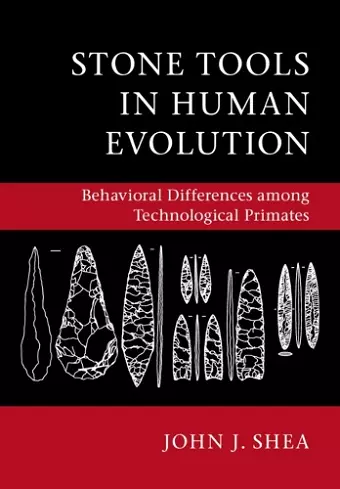Stone Tools in Human Evolution
Behavioral Differences among Technological Primates
Format:Hardback
Publisher:Cambridge University Press
Published:7th Nov '16
Currently unavailable, and unfortunately no date known when it will be back
This hardback is available in another edition too:
- Paperback£32.00(9781107554931)

An exploration of how the evolution of behavioral differences between humans and other primates affected the archaeological stone tool evidence.
This book explains in simple, straightforward terms what stone tools are, how and why they vary, and what that variability means for human evolution. It is a book about stone tools written for students and for non-archaeologists by an expert at making, using, and analyzing stone tools.In Stone Tools in Human Evolution, John J. Shea argues that over the last three million years hominins' technological strategies shifted from occasional tool use, much like that seen among living non-human primates, to a uniquely human pattern of obligatory tool use. Examining how the lithic archaeological record changed over the course of human evolution, he compares tool use by living humans and non-human primates and predicts how the archaeological stone tool evidence should have changed as distinctively human behaviors evolved. Those behaviors include using cutting tools, logistical mobility (carrying things), language and symbolic artifacts, geographic dispersal and diaspora, and residential sedentism (living in the same place for prolonged periods). Shea then tests those predictions by analyzing the archaeological lithic record from 6,500 years ago to 3.5 million years ago.
'A useful counterbalance to hidebound Paleolithic systematics, Stone Tools in Human Evolution implements a better-grounded descriptive approach. It shows a way forward and therefore deserves close study.' Current Anthropology
'Designed for a readership of upper-division college and first-year archaeology graduate students (with 'boxes', plenty of line drawings, and a glossary of terms), but with a distinct message for all those who think about and research human evolution - biological and cultural - this interesting book has a valuable message. It is full of thought-provoking and sometimes provocative ideas.' Journal of Anthropological Research
ISBN: 9781107123090
Dimensions: 260mm x 182mm x 15mm
Weight: 710g
306 pages